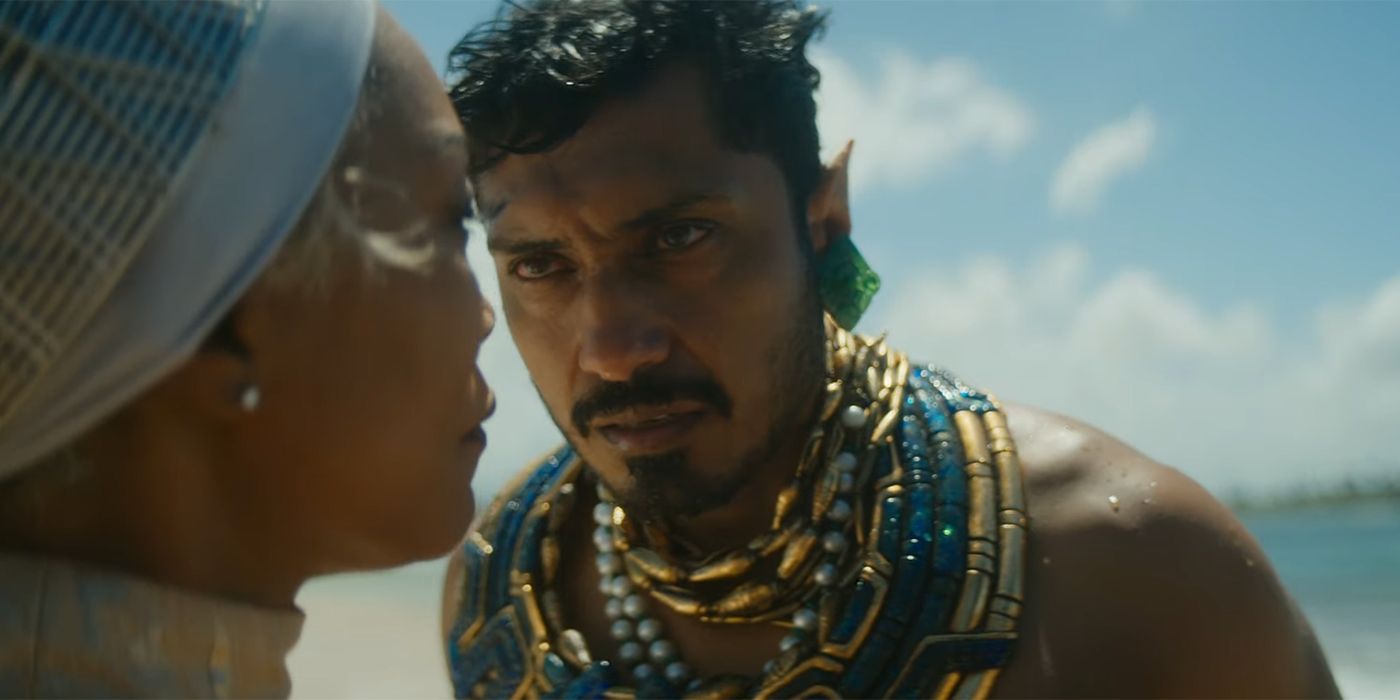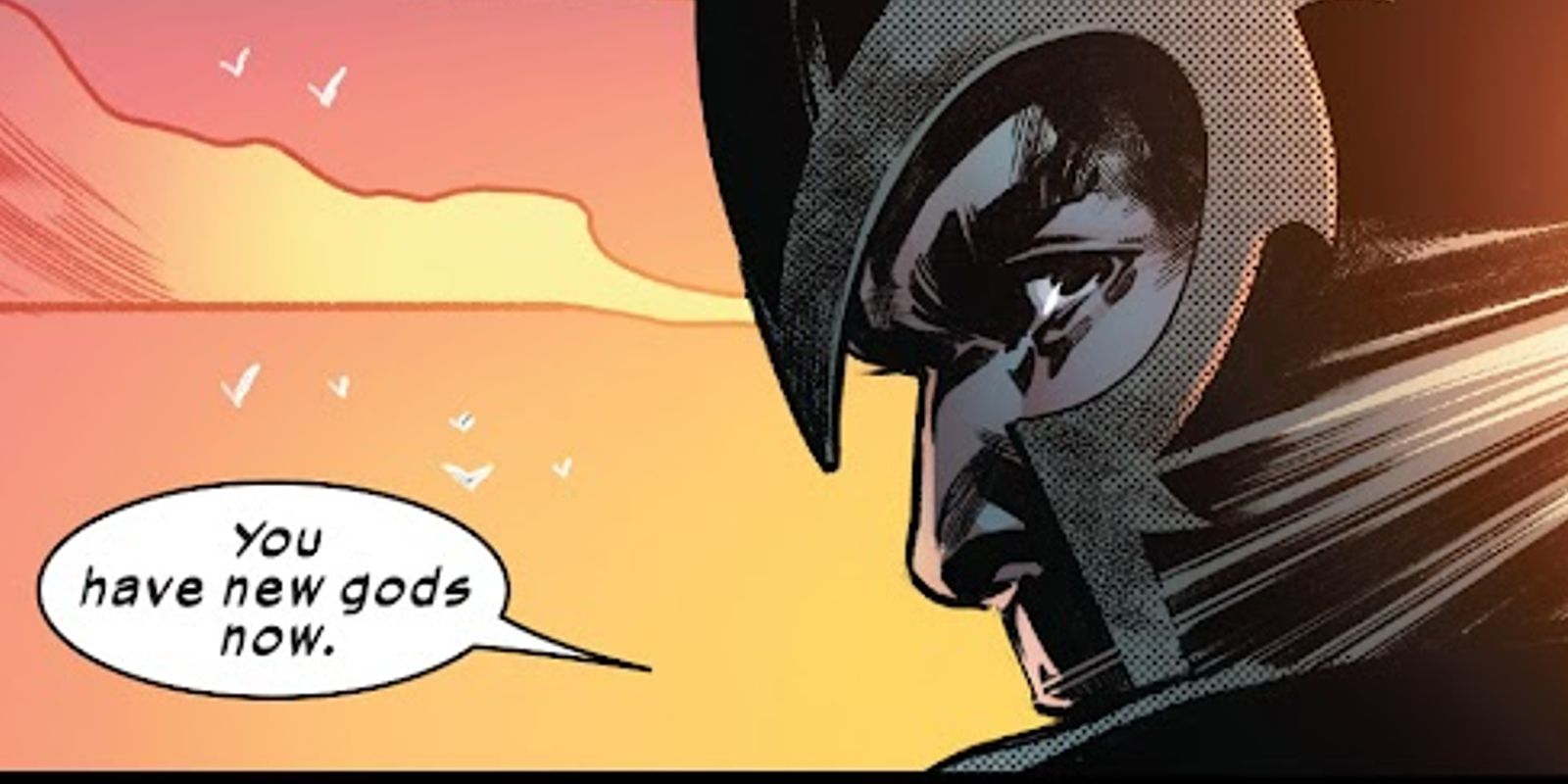Black Panther: Wakanda Forever may finally explain where mutants have been in the MCU all along. Phase 4 may be known as the beginning of Marvel's Multiverse Saga, but it's already important for another reason: it has introduced mutants into the MCU. Marvel reacquired the film rights to the X-Men and their associated characters after Disney purchased the bulk of Fox's movie and TV empire, and the studio has wasted no time incorporating mutants into their shared universe. Now, the latest Black Panther: Wakanda Forever trailer offers some hint of where these characters have been hiding.
SCREENRANT VIDEO OF THE DAY
The first mutant to be officially confirmed as part of the MCU was Kamala Khan, a.k.a. Ms. Marvel. This seemed to suggest the MCU's interpretation of mutants would be loosely inspired by the comics' concept of "latent mutants," whose X-gene required exposure to some form of energy to be triggered. Since then, however, the idea has become rather confusing; She-Hulk: Attorney at Law has featured numerous characters who are considered mutants in the comics, and there's been no hint these characters' powers were triggered by any events they experienced. It increasingly looks as though mutants are becoming mainstream in the MCU, but this naturally raises the question of why mutants have been missing until Phase 4.
Surprisingly, an answer may have been provided in the new trailer for Black Panther: Wakanda Forever. The next Marvel blockbuster will introduce viewers to Tenoch Huerta's Namor the Sub-Mariner. He is the ruler of Atlantis in the comics, but the MCU has associated him instead with the mysterious realm of Talocan, based on South American mythology. The Black Panther: Wakanda Forever trailer hints that Namor should be considered a god, but in reality, Huerta has confirmed, Namor is something very different.
Namor the Sub-Mariner Is A Mutant, Not A God

The MCU's version of Namor the Sub-Mariner is associated with Kukulkan, the feathered serpent god of many Mesoamerican cultures. Comments from actor Tenoch Huerta suggest that's a misdirection, however, because he's already confirmed Namor is a mutant in the MCU. This is perfectly in accordance with the comics, where Namor is often —incorrectly — called the First Mutant, given he was born before World War II. His mutation has given him wings on his ankles, something no other Atlantean shares. The new trailer for Black Panther: Wakanda Forever showcases Namor's power of flight, with him darting through the skies. As in the comics, no one else among Namor's people possesses wings on their ankles, nor are they shown to be capable of flight.
Those winged feet may explain why Namor is associated with Kukulkan in the eyes of his people, however. As seen in the first trailer for Black Panther: Wakanda Forever, Namor was born with them, and it is important to note that they are feathered. This could have led to him being seen as the incarnation of the feathered serpent god. It's interesting that trailers for the Black Panther sequel hint that Namor has had an extremely long life — there's actually some confusion in Yucatán precisely because there is evidence of a historical priest or ruler who bore the name Kukulkan. Marvel could potentially be suggesting Namor is that same Kukulkan, a mutant who was mistaken for a god and who became a ruler.
The Worship Of Namor May Explain Where Mutants Have Been In The MCU

This may subtly hint at where mutants have been in the MCU until now. There could be something of a blurred line between the pantheons and gods of the MCU, the supernatural entities, and the mutants; indeed, this could well explain why Marvel has chosen to explore all three in MCU Phase 4. Curiously, this is an approach that's actually been taken in the comics of late; rather than the next evolutionary step of humanity that emerged within the last century, mutants were revealed to have been almost always present but just mistaken for gods and monsters. Tini Howard's Excalibur #1, for example, seemed to suggest the history of anti-magic violence — from the Valais witch trials of the 15th century to French legends like the Beast of Gévaudan — was partly directed against mutants. The same could be true in the MCU, with mutant numbers unwittingly kept down by monster-hunters, while other mutants were mistakenly believed to be gods and angels.
Namor may not be the first official mutant in the MCU — that title goes to Kamala Khan's Ms. Marvel, confirmed a mutant rather than an Inhuman, another evolutionary offshoot of humanity, as she is in the comics. Still, Namor's example in Black Panther: Wakanda Forever may help to explain why mutants haven't been seen in the MCU up until now. They've been there all along, but they simply weren't recognized.
